Premonitions of Fred Wah: An Interview
BY Paolo Javier
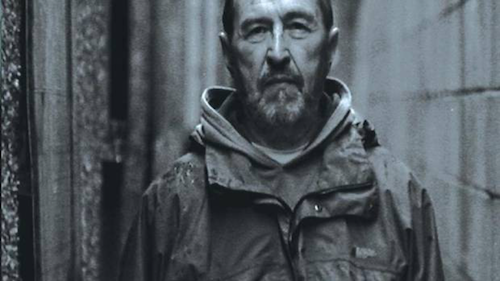
PAOLO: If I may, I’d like begin with the last part of the second poem in Tree (1972):
dear birch across from me we face
the quiet pool of ourselvesface each other
return
we
look that way
Since buying the hardcover edition last year at your NYC launch with Jeff Derksen and Mark Nowak, Scree has settled into a permanent place on my bedside shelf. And it’s become an absolutely essential text—and a BEAUTIFUL edition at that—for yours truly. I have tremendous affinity for several of your admitted early sources of creativity: negative capability, Rilke’s einsehen, intuition by way of improvisation (jazz). What was it like for you to return to such formative poems? Do you recall how certain of these books came about? It’s hard not to admire such an early body of work by a poet who, in Faking It, claims to have “stumbled through grammar tests and essays in a haze, nearly failing English in my first year at University of British Columbia.”
FRED: Returning to earlier writing felt more a recognition of what I had left. Not in the sense leaving behind but what I still could comprehend as familiar attempts at composition. Poetry writing for me provided, and still does, a way of measuring my world, through playing in the possibilities of language, trying it on as an instrument. Going back to earlier writing I realized I never left behind a desire to address the particulars of where I live, senses of “place” and the “local” that West Coast writers like Gary Snyder and Lew Welch had illustrated in poetry’s turn in the early ’60s. It was curious for me to trace the shifts over thirty years of writing from that more geographical address (the world that I share with that birch in the above poem) to the more racialized and biotextual attention in the writing from the ’80s. Part of that is my own growth, but part of it is also a social transition during that time that offered a critique of race and identity, redress and colonialism. As well, cruising through those earlier books, I could see my own struggles with form and my attempts to derive use from Asian structures and the prose poem, as you note in the next question.
PAOLO: When did you start writing poetry? I know that this question should be unpacked a bit more, so let me break it down further: can you remember when you wrote your first poem, and when you realized “poetry writing” as “a way of measuring [your] world”?
FRED: Late ’50s. At some point I was excited by some connection between spirit and mind that I found in Rilke’s “Duino Elegies.” A sense of cosmos and deep feeling. I was studying music at UBC, composition, not performance. I had played jazz trumpet in high school and jazz remained at the roots. I needed an English class and decided I’d tag along to my girlfriend’s class with Warren Tallman. English 406, William Carlos Williams, Don Allen’s New American Poetry; all of sudden in the early ’60s, writing poetry became more appealing than writing music. The Black Mountain poets opened it up for me. What jibed for me in this new mix was continuing to work with improvisation. Suddenly, for me, language became music, and that’s pretty much remained.
PAOLO: English 406! I think I took that class and 407 too, both taught by Peter Quartermain—which forever altered the direction of my writing. I had no idea you studied music at UBC, a subject in your poetry I’d like to return to later. With regard to Black Mountain: Hoa Nguyen is a big, big fan of your work, and she observes that your early books offer “the possibilities of an ecopoetics extending from place-based investigations that included the personal, public history, and cosmological (which is an extension of an Olsonic proposal).”
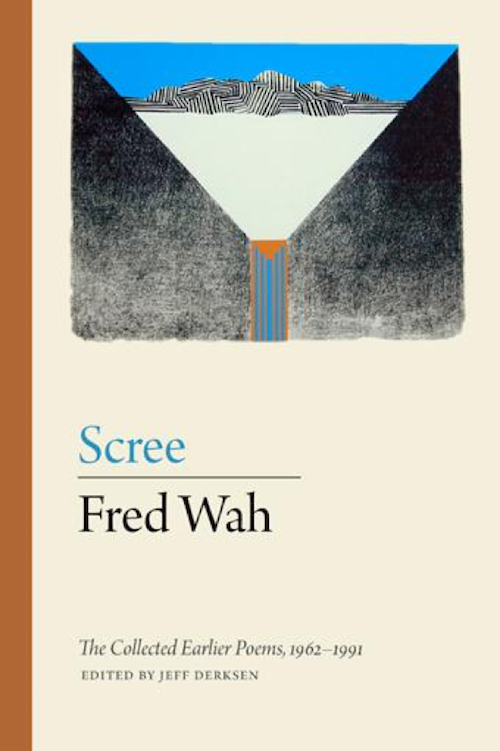
I don’t have the stats on hand, but there seems to be a lot more poets publishing their books in/as prose. But you come to play with the form/genre in your later collections. For much of Scree, the poetic line seems to be where the heart of your music can think itself fully. Until the ’80s, that is, when your poetry begins its restless, inventive, exhilarating, and moving journey towards/through/out (of) prose and the prose sentence: notational “Tai Chi writing”; utaniki; haibun; travel journal; epistolary, to name a few. In Breathin’ My Name With A Sigh, Grasp the Sparrow’s Tail, Waiting for Saskatchewan—the writing opens up on the page to embrace line and sentence, stanza and paragraph. And the semantic “place” of your poems begins to fill with auto/biography and personal narrative, socio-cultural history and critique. Would you comment on this shift?
FRED: Breathin’ My Name With A Sigh was a fairly major pivotal project for me. Written during the late ’70s, not only did it confront me with the transition from typewriter to computer, but the writing was also working through my own racially hybrid identity. The ’70s and ’80s were also a time when multi-culturalism opened up historical recognitions like Japanese-Canadian and Head Tax redress; “Writing Thru Race” was a conference we organized through the Writers Union in the early ’90s, for example. Poetically I felt aligned particularly to the exploration of the prose poem as a way of juxtaposing both of my interests, place and race. The utaniki and the haibun both include prose alongside poetry as a more discursive way to articulate content. Drunken tai-chi, unpredictable and dissonant masking of the intentional and the expected. The incomplete and run-on sentence masking the expected clarity of a complete thought.
PAOLO: “The incomplete and run-on sentence masking the expected clarity of a complete thought”—an ars poetica, perhaps, for Music at the Heart of Thinking, another one of your pioneering books of prose from that time period. Since you mention the transition from “typewriter to computer” here, I’m curious to ask you about your writing process during the period of your early books preceding Breathin’. Maybe take us back to your early attempts to write and publish as an undergrad, even?
FRED: I don’t think of Music at the Heart of Thinking as “prose” but certainly as “prose poem,” a compositional choice I started to explore in the late ’70s. MHT started as a response to an Open Letter project on “notation.” Around 1981, editors bpNichol and Frank Davey planned a series of issues on that topic and, since I didn’t write critical essays, I engaged with five ad libs riffing off of some Robert Kroetsch writing. In jazz trumpet I had always been interested in how to toke up enough breath for long, extended phrasing. The run-on and incomplete sentence offered that exploration. For a poet, the prose sentence as a unit of composition invites a natural intervention, much like inserting “drunken” tai chi into predictable formal tai chi. The tyranny of the prose sentence also conveniently represented, for me, the tyranny of inherited and colonial forms so MHT helped me shape a pertinent social and cultural critique while also writing about text, painting, and music.
As to the transition from typewriter to computer, that happened by the end of the ’70s. I remember that I was struggling with the typing up of Breathin’ because it was a “book” composition project and I kept having to retype stuff in trying to shape it. It seemed arduous, and then Stan Bevington at Coach House Books was getting into digital typesetting and the press invited a few of us to use their file system for manuscripts in progress. For awhile, then, he would publish in print-out form manuscripts as they went through changes. What really turned that project alive for me, though, was the Apple computer, which I came onto around 1979-80. A happy coincidence for the run-on phrasing in the prose poem since the computer allowed rapid-fire composition and editing. Of course, for the first 20 years of my writing I was totally into typewriters and mimeograph publishing. I still have my Hermes.
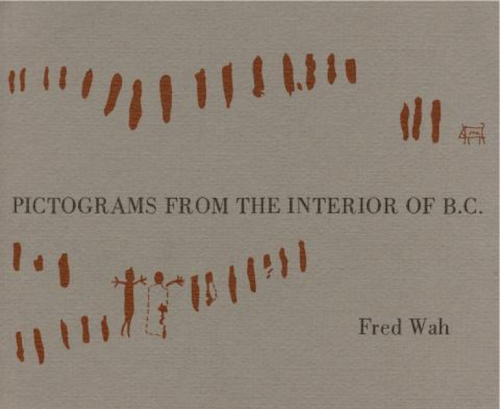
PAOLO: Have you always composed on typewriter or computer at the initial stage of making the poem? I remember buying an Olivetti and giving it the old college try—literally, while a sophomore undergrad—and figuring out how best to develop a writing practice. I would switch between typewriter and computer for much of that year until I gave up both. I struggled to complete a full draft of many poems or stories on either, inflamed by the urge to revise, which both technologies make so hard for a Virgo to resist.
FRED: Initial engagement is usually pen to paper. When I was a student in the ’50s, a typewriter wasn’t that possible. Portable typewriters were just coming on. Of course when I finally could afford to own one, it became a possible compositional tool. But still an arduous task, until the personal computer came along in the early ’80s. I still like handwriting, particularly because I find my own handwriting hard to read and I enjoy the thinking generated by my own mis-reading. I love the poignancy of mistakes. A fellow poet told me recently about her “wrecked” poem. I bet there’s some really interesting material in the “wreck.”
PAOLO: “The tyranny of the prose sentence also conveniently represented, for me, the tyranny of inherited and colonial forms so MHT helped me shape a pertinent social and cultural critique while also writing about text, painting, and music.” My own awareness of such “tyranny” developed alongside a burgeoning phase of a serious writing practice during the latter part of my third year of college. The shock of recognizing such “inherited colonial forms” led to a disorienting struggle with prose and fiction, to the extent I became unable to complete sentences in either mode/genre/form. To this day, I still struggle with composing sentences; writing these Harriet posts, in fact, generated some of the same flashes of anxiety and dread from two decades ago. Perhaps my difficulty with prose has to do with how much it takes out of me to complete. It often feels like something I have to body forth.
WAIT FOR THE MIND TO STOP FOR THE WRITING
TO GO
ahead into the rush for the hand to hold the
head’s waiting (or keep the motor running) in
place of an image caught movement of the
world art at a standstill picture I thought to
write to move could be a movement of the
movement Fenellosa naturally more music in
the body heaves the mind to work inside the
body syntax synapse to jump the spot or specific
junction shipped into the text with the mind
caught thinking earth earthing world world
music a sign aptic rhythm of body convulsion
...
(from Music at the Heart of Thinking #3)
So I’ve long-wondered about the impact of one’s musical training on their writing. The connection to music in poetry, obviously, but for my own particular experience with prose, I remember appreciating the sentences and paragraphs of authors who turned out to have some skill with a musical instrument. I wonder if what pianist and scholar Vijay Iyer calls embodied cognition plays out (pun intended) in a writing praxis as much as a jazz one. You touch on improvisation, the breath and the prose sentence earlier in this interview, of “playing in the possibilities of language, trying it on as an instrument.” Would you elaborate further on the correlation between your own jazz playing and your writing?
FRED: Partially answered above. Certainly notions of embodiment, breath control, embouchure, the speed of the mind as part of the body, fingers on valves/fingers on pen, typewriter, etc. I think one of the primary things in composition and/or playing is the particularity of the material, the acoustics, the morphology of the syllable, intonation, all those aspects of what’s actually going in the language or the music, at the moment, so time, too, is fun. Or maybe it’s something to do with stance, how you place yourself alongside, in front of, the event of the material on the move. So yes, I would say, it does.
PAOLO: The ’70s is the decade when Frank Chin’s Big Aieee! came out, which galvanized Asian Pacific Islander American writers, scholars, and readers, and helped usher in an unprecedented new era of publishing. No one makes art in a vacuum; were there particular writers or artists whom you drew inspiration from in your pivot to prose? Were there poets or writers in Canada exploring the intersection of “place and race” whom you were sympatico with?
FRED: I remember seeing Big Aieee! and being distantly interested and sympathetic. But in Canada, I think we were going through a parallel shift in attention to race. I had been on about “place” for most of the ’60s and ’70s, but during the ’70s I became aware of a shift. By the early ’80s Joy Kogawa’s Obasan, a novel about Japanese-Canadian internment, the Japanese-Canadian Redress committee, and steps toward an official declaration of Canadian multiculturalism provided a context for the kind of biotextual address I had come to in Breathin’ My Name with a Sigh. I had been earlier aesthetically related to Roy Kiyooka and Roy Miki, but in the early ’80s we were just coming into possible race discourses. I don’t think it was until the early ’90s when a racialized constituency became part of the scene, both in the States and in Canada. Walter Lew’s pivotal anthology of “New Asian North American Poetry” [Premonitions], published in 1995, was really the first substantive collation. Also by then there were a number of younger writers in Canada like Rita Wong and Larissa Lai who have since become major poetic voices in the “race” scene. That racialized transition through the ’80s and ’90s early on led me to an exploration of “hybridity,” which continues.
PAOLO: Man, I adore Walter’s anthology, especially for how it foregrounds innovation and multiplicity of poetic form as part of its troubling of canons. And by including Roy Kiyooka, Roy Miki, Gerry Shikatani, and your work, Premonitions seemed to make the argument back then for experimental writing as foundational to Asian-Canadian poetry. Quite a number of experimental poets of Asian descent in Canada, including younger poets/novelists Rita Wong and Larissa Lai, have achieved national prominence for their poetry and scholarship. Canadian Parliament even appointed you, a Tish poet, as its laureate! And each of you share a legacy of social and environmental activism. The early books in Scree certainly example your deep connection to nature and place,
Each single soul of us named Earth
put our feet on the ground and spring up
trees and little children reach
water as the geogonous fungi a rock
granno-diorite black stone and animals
eat and love—from Earth (1974)
anticipating much of today’s eco-poetics discourse. I’m indebted to poet/founder Jim Wong-Chu and the Asian Canadian Writers Workshop, not just for introducing me to your poetry, but also for supporting my early attempts at writing (via Ricepaper magazine). The organization, which only emerged in the ’90s, continues to be a national advocate for Asian-Canadian literature. How would/do you distinguish the trajectory of Asian-Canadian poetry since your early days of publishing?
FRED: The context for “Asian-Canadian” poetry didn’t really start developing until the late ’70s during the turn to multiculturalism. The Japanese-Canadian Redress committee started its work around then. Joy Kogawa’s Obasan, a novel reflecting the WWII JC internment in Canada, was published in the early ’80s. I also remember meeting Jim Wong-Chu in the ’80s and, I think, he had started the Chinese-Canadian Writers workshop, later the Asian-Canadian Writers Workshop. And then, as you say, Ricepaper. Jim and Bennett Lee edited a collection of Chinese-Canadian poetry, Many Mouthed Birds, in 1991. And the ’90s were highlighted with numerous publications and, especially, the significant gathering of writers of colour “Writing Through Race.” All that history has been well documented. For me, that large turn during the ’80s led to unpacking some of the dynamics of hybridity, which has become a thinking passion for the past 40 years. Asian-Canadian poetry has, I think, actualized Walter Lew’s “Premonitions.”
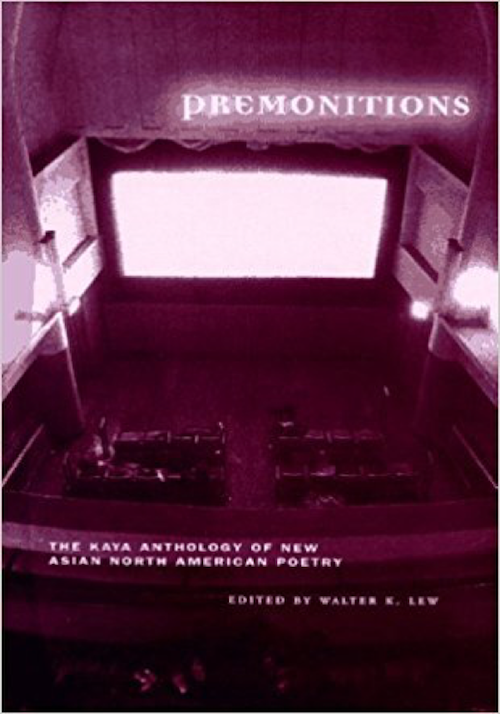
PAOLO: In the past, you’ve acknowledged bpNichol’s influence in your explorations of the prose sentence. This leads to such groundbreaking prose works as Breathin’ My Name with a Sigh, Waiting for Saskatchewan, and Diamond Grill, which not only push the limits of the form but also connect your poetry to a wider readership, resulting in multiple national awards for these books, including the Governor General's Award. I'm a huge fan of bp's work, whose experiments with sound poetry and poetry comics have been guides for my own recent forays. Would you discuss your friendship with bp, and his place in your own poetry?
FRED: This really requires a more substantial response than I have time for here. beep was a major poetry companion during the ’70s and ’80s. He was an immense help with Breathin’, and we talked back and forth for a couple of years during that project. He also introduced me to the utaniki, the poetic diary that I first used with Grasp the Sparrow’s Tail and that became a very substantive form for me later in the ’90s. His own You, too, Nicky was important formal information. And we talked a lot about his own major writing project The Martyrology. I co-taught, with Roy Miki, an expert on bp’s work, a graduate seminar on the Mart. And for several summers beep and I taught together at the Red Deer writing workshop. He was a very close friend and, as many will attest, a supreme catalyst in the writing community. His death at forty-four, in 1988, was an immensely sad loss. But his poetry and its intelligence are lifelong.
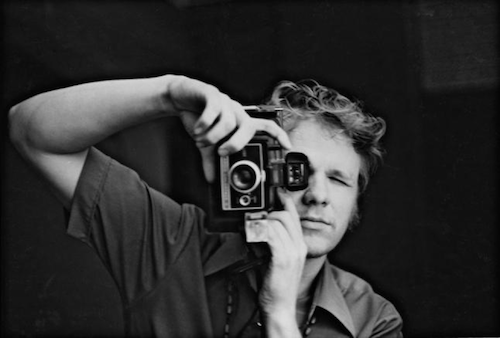
PAOLO: So we can thank bpNichol for the push in this important new direction of your work? Incredible.
I’m also drawn (pun intended) to the design of your poems throughout Scree; as you point out in “A Note,” “each book re-presented its own making.” Perhaps this is a good place to consider the East Coast and West Coast Canadian poetry community-building/bridging/publishing taking shape during the ’60s and ’70s. During these decades, I sense a consistent push towards experimentation with the composition and publishing of poetry, prose, and its hybrid forms, among the Tish Poets and early Coach House Press authors. In addition to your work, I think of bp, Daphne Marlatt, and even Michael Ondaatje, a wildly successful mainstream novelist these days, who published his early poetry and prose books with Coach House (and would blurb your Governor General’s Award-winning experiment with the utaniki, Waiting for Saskatchewan). Would you relate your experience with both poetry scenes on opposite coasts of Canada during this period?
FRED: I wouldn’t consider Coach House East Coast; more in the middle. There has been, periodically, a juxtaposition between Vancouver and Toronto. In the early CHP days, this was due to connections made with people like Victor Coleman and David McFadden. Victor and Stan Bevington were primary movers in the late ’60s early ’70s publishing scene and CHP gathered a major portion of Canadian poets in those days. But Vancouver (and Montreal) also generated a significant poetic energy. Most of my publishing, for example, has been with Talonbooks, until recently run by Karl and Christy Siegler (now Kevin and Vicki Williams). Talonbooks is still a major publisher of Canadian poetry. Though Toronto has continued to be at the centre of publishing, Vancouver, as a scene ,remains very germinal to poetic production and has an extremely active constituency, but tied, as it has been for many years to West Coast, American, and British poetry.
PAOLO: I really admire Jeff Derksen’s introduction to Scree, especially his contextualization of these early poems against the “height of Canadian cultural nationalism” as “rework[ing] the investigative and process-based aspects of early 1960s poetics through the geographical and cultural details of a different place, a body with a different history that in itself troubled the geographical space of the nation.” Would you talk about your collaboration on the manuscript of Scree?
FRED: Jeff’s sense of publishing and poetic production is highly intelligent, and informed, in our relationship, with common references, both aesthetic and social. His sense of the book as a unit of composition was the focus for us in putting Scree together. He has always been an astute reader of my work, and particularly an essay he wrote years ago on Breathin’ My Name with a Sigh which, I think, is one of the most usefully contextualizing critiques. And it was Jeff’s idea to use facsimiles of two of the early books to show that sense of “hands-on” printing so important in those early years.
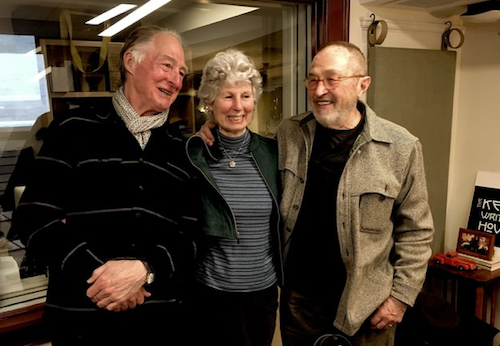
PAOLO: Jeff’s insight brings me back to your recent Poets House reading/panel with fellow Tish alums Daphne Marlatt and Colin Browne, on the tail end of your U.S. Tour for Talonbooks. I brought up territorial acknowledgments among the distinctions of yours and Daphne and Colin’s poetics of place and naming. As Métis writer and educator âpihtawikosisân’s powerful piece on the issue (thanks for sending, btw) elucidates:
If we think of territorial acknowledgments as sites of potential disruption, they can be transformative acts that to some extent undo Indigenous erasure. I believe this is true as long as these acknowledgments discomfit both those speaking and hearing the words. The fact of Indigenous presence should force non-Indigenous peoples to confront their own place on these lands.
But I appreciate how you troubled my distinction—which, in hindsight, perhaps struck too much of a glass half-full position on the issue—by turning to the NYC audience with the following question: “Don’t you all feel like colonizers?” Again, from âpihtawikosisân:
Often, territorial acknowledgments characterize non-Indigenous peoples as ‘guests’. Are guests only those people who are invited? Or are they anyone who finds themselves within the physical territory of their hosts? Why guests and not invaders? To what extent was permission actually sought to be in these territories, and conduct the affairs that Indigenous nations are thanked for ‘hosting’? What if an Indigenous person stood up and revoked that assumed permission?
Is there currently an active coalition of Indigenous and non-Indigenous poets in B.C. seeking to push territorial acknowledgments “into the beyond,” as âpihtawikosisân proposes?
FRED: I think the problems around reconciliation are very real and the discourse, as this piece from âpihtawikosisân shows, is complex. There are many endeavors at coalition building but, even more so, a substantial increase in awareness of indigeniety in Canada. My troubling of your distinction is an indication of my own discomfort with the manners of acknowledgement. I was surprised, during the panel discussion at Poets House, at that remark from the audience that colonization is something that East Coast Americans are not likely too aware of because “there are no Indians around here” (paraphrase). Afterwards, Bruce Andrews and I had an interesting discussion about how American “acknowledgement” of slavery might be interesting parallel.
PAOLO: When I moved back to NYC in '99, I was shocked by the absence of any discussion about Indigenous rights among poets and progressives--exampled, unfortunately, by said audience member’s remark. Needless to say, I’m grateful to Poets House for giving us New Yorkers the opportunity to see and hear Daphne, Colin, and you read on your East Coast tour. What a fantastic conclusion to your whirlwind trip!
I’m also overjoyed about this interview. At PH, it was clear that I was being too much of a fan boy, unable then to ask you the important questions that you answered here. Thank you, Fred. Hope we get to do this again for your Collected Essays, pt 1. Fingers crossed!
Paolo Javier was born in the Philippines and grew up in Las Piñas, Metro Manila; Katonah, New York; ...
Read Full Biography

